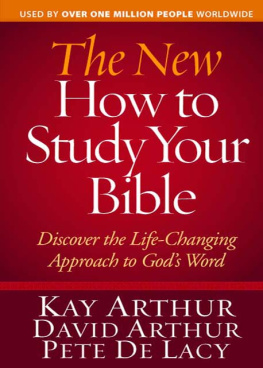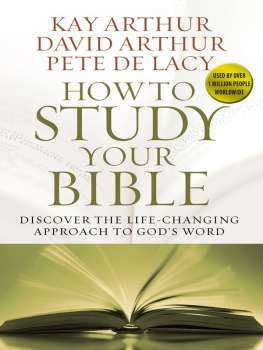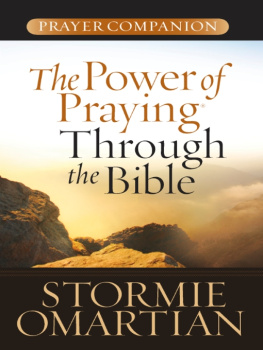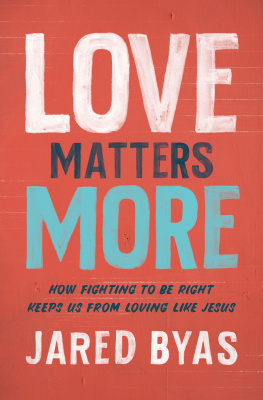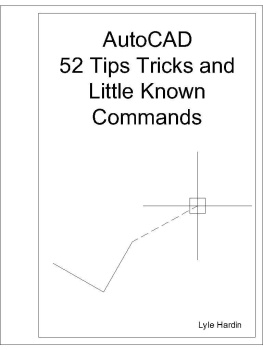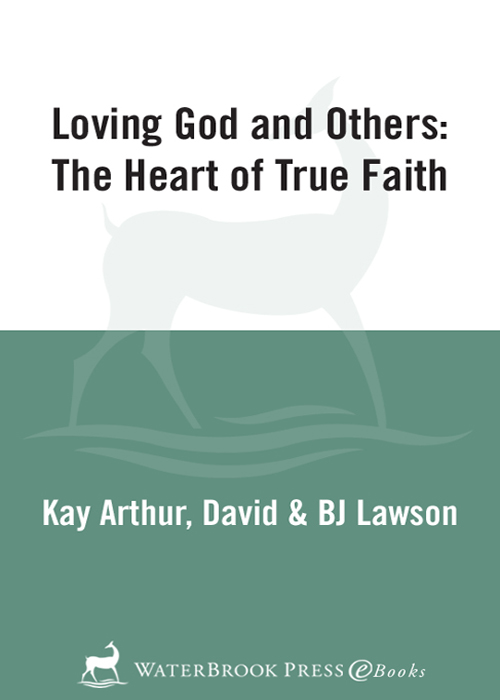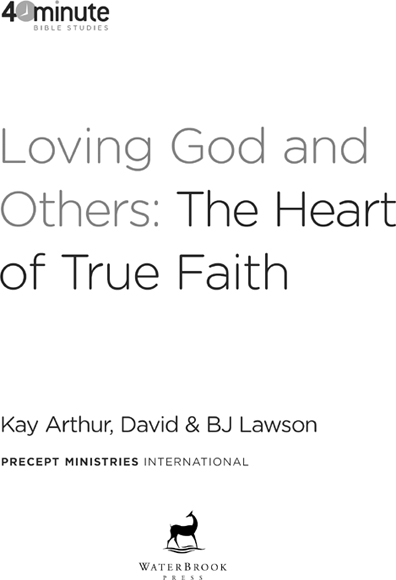HOW TO USE THIS STUDY
This small-group study is for people who are interested in learning for themselves more about what the Bible says on various subjects, but who have only limited time to meet together. Its ideal, for example, for a lunch group at work, an early morning mens group, a young mothers group meeting in a home, a Sunday-school class, or even family devotions. (Its also ideal for small groups that typically have longer meeting timessuch as evening groups or Saturday morning groupsbut want to devote only a portion of their time together to actual study, while reserving the rest for prayer, fellowship, or other activities.)
This book is designed so that all the groups participants will complete each lessons study activities at the same time. Discussing your insights drawn from what God says about the subject reveals exciting, life-impacting truths.
Although its a group study, youll need a facilitator to lead the study and keep the discussion moving. (This persons function is not that of a lecturer or teacher. However, when this book is used in a Sunday-school class or similar setting, the teacher should feel free to lead more directly and to bring in other insights in addition to those provided in each weeks lesson.)
If you are your groups facilitator, the leader, here are some helpful points for making your job easier:
Go through the lesson and mark the text before you lead the group. This will give you increased familiarity with the material and will enable you to facilitate the group with greater ease. It may be easier for you to lead the group through the instructions for marking if you, as a leader, choose a specific color for each symbol you mark.
As you lead the group, start at the beginning of the text and simply read it aloud in the order it appears in the lesson, including the insight boxes, which appear throughout. Work through the lesson together, observing and discussing what you learn. As you read the Scripture verses, have the group say aloud the word they are marking in the text.
The discussion questions are there simply to help you cover the material. As the class moves into the discussion, many times you will find that they will cover the questions on their own. Remember, the discussion questions are there to guide the group through the topic, not to squelch discussion.
Remember how important it is for people to verbalize their answers and discoveries. This greatly strengthens their personal understanding of each weeks lesson. Try to ensure that everyone has plenty of opportunity to contribute to each weeks discussions.
Keep the discussion moving. This may mean spending more time on some parts of the study than on others. If necessary, you should feel free to spread out a lesson over more than one session. However, remember that you dont want to slow the pace too much. Its much better to leave everyone wanting more than to have people dropping out because of declining interest.
If the validity or accuracy of some of the answers seems questionable, you can gently and cheerfully remind the group to stay focused on the truth of the Scriptures. Your object is to learn what the Bible says, not to engage in human philosophy. Simply stick with the Scriptures and give God the opportunity to speak. His Word is truth (John 17:17)!
LOVING GOD
AND OTHERS:
THE HEART
OF TRUE FAITH
H ave you ever asked yourself, What does God really want from me?
Those who truly want to please God can easily get confused. One Bible teacher details a long list of all of the commands you should be keeping. The next teacher says you are not under law at all; all that matters is grace. Does that mean you dont have to keep any commands? Who is right?
What does it take to live a God-pleasing life?
Centuries ago, the experts in Jewish law took the Ten Commandments and multiplied them into 613 laws. Talk about confusing. Jesus, however, took the Ten Commandments and divided them into two: love God and love people.
In the next six lessons well look at these two great commands that define the very heart of Christian faithand learn how following them can transform not only your life but the lives of those around you.
WEEK ONE
When an expert in the law asked which was the greatest commandment, Jesus answered by referring to the Shema, a basic confession of faith in Judaism that calls the people to love God with all of their heart, soul, mind, and strength. This answer is what the lawyer expected; however, what Jesus said next surprised His listeners and changed the course of history. Not only were Gods people to love Him with all their heart, soul, mind, and strength, but they also were to love others as themselves.
OBSERVE
The religious leaders of the day had one goal: to get rid of Jesus. To that end, they had been challenging Jesus authority. The scene were about to look at opens just after the Sadducees tried unsuccessfully to trap Him into saying something that would get Him in trouble with the people and the Roman rulers. Now the Pharisees were trying to do the same. They sent a lawyer to Jesus with a question hotly debated among the religious leaders of the time.
Leader: Read Matthew 22:3440 aloud. Have the group say aloud and
M ATTHEW 22:3440
34 But when the Pharisees heard that Jesus had silenced the Sadducees, they gathered themselves together.
35 One of them, a lawyer, asked Him a question, testing Him,
36 Teacher, which is the great commandment in the Law?
37And He said to him, You shall love the L ORD your God with all your heart, and with all your soul, and with all your mind.
38 This is the great and foremost commandment.
39 The second is like it, You shall love your neighbor as yourself.
40 On these two commandments depend the whole Law and the Prophets.
mark every reference to Jesus, including synonyms and pronouns, with a cross:
draw a heart over each occurrence of the word love:
As you read the text, its helpful to have the group say the key words aloud as they mark them. This way everyone will be sure they are marking every occurrence of the word, including any synonymous words or phrases. Do this throughout the study.
DISCUSS
What did the Pharisee ask Jesus?
What was Jesus response?
What did Jesus identify as the second most important commandment?
What do we learn about these two commandments in verse 40?
INSIGHT
The phrase the Law and the Prophets was the standard way of referring to the Hebrew Scriptures (our Old Testament). When Jesus said, On these two commandments depend the whole Law and the Prophets, He meant that all other commands are summed up or contained in these two.


